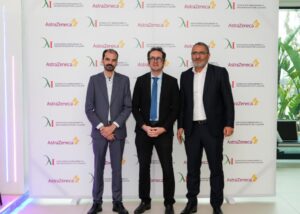Super Health Centers Take Center Stage Ahead of President Marcos’ State of the Nation Address

Manila, The Gulf Observer: With President Ferdinand Marcos Jr.’s State of the Nation Address (SONA) just days away, the rollout of Super Health Centers (SHCs) has emerged as a flagship achievement of his administration’s health agenda, signaling a strong commitment to accessible and community-based healthcare.
According to the Department of Health (DOH), more than 600 SHCs have already been funded and constructed across the country since the initiative began in 2022. These centers, envisioned as upgraded rural health units, are designed to provide essential medical services closer to remote and underserved communities.
DOH Secretary Teodoro Herbosa emphasized that SHCs are integral to the Universal Health Care (UHC) Law, under Republic Act 11223. “They help decongest hospitals while bringing quality healthcare directly to Filipinos in their communities,” he said, noting that SHCs represent a long-term structural improvement to the country’s primary care network.
First introduced in 2021, SHCs are equipped with facilities for outpatient consultations, laboratory tests, X-ray, ultrasound, ECG, minor surgeries, maternal and child care, tuberculosis screening, and ambulatory services. They also serve as vaccination centers, pharmacy dispensaries, and key referral points for patients needing specialized hospital care.
Since their inception, SHCs have rapidly expanded: 307 were built in 2022, followed by 322 in 2023, and 132 more so far in 2024. The DOH identifies strategic sites for these facilities, filling critical gaps between barangay-level health stations and provincial or regional hospitals.
In recent months, new SHCs have opened in Pangasinan, Eastern Visayas, and Zamboanga City, adding to those already operational in areas such as Aklan, Agusan del Sur, Bulacan, Cebu City, Dinagat Islands, Leyte, and Northern Samar. Groundbreaking ceremonies for new facilities were also held this year, including a PHP187-million center in Camalig, Albay on February 27, and a PHP12-million SHC in Matag-ob, Leyte on February 28. Manila also joined the list with a PHP50-million SHC in Sampaloc, launched by then-Mayor Honey Lacuna on March 24.
Senator Christopher “Bong” Go, a principal advocate of SHCs under the UHC Law and Republic Act 11959 (Regional Specialty Centers Act), reiterated their importance in reducing hospital overcrowding, promoting preventive care, and minimizing the financial strain on patients who otherwise travel long distances for treatment.
The program is a product of inter-agency coordination, with the Department of Public Works and Highways (DPWH) handling construction, while the DOH and local government units manage operations and oversight.
Looking ahead, the Marcos administration plans to expand SHC services further to include digital health integration, improved diagnostic capabilities, and mental health support. These enhancements aim to strengthen community resilience, especially in the wake of the long-term impacts of the COVID-19 pandemic.
As anticipation builds for the President’s address, the continuing rollout of SHCs stands as a cornerstone of a broader vision for inclusive, responsive, and community-rooted healthcare for every Filipino.


